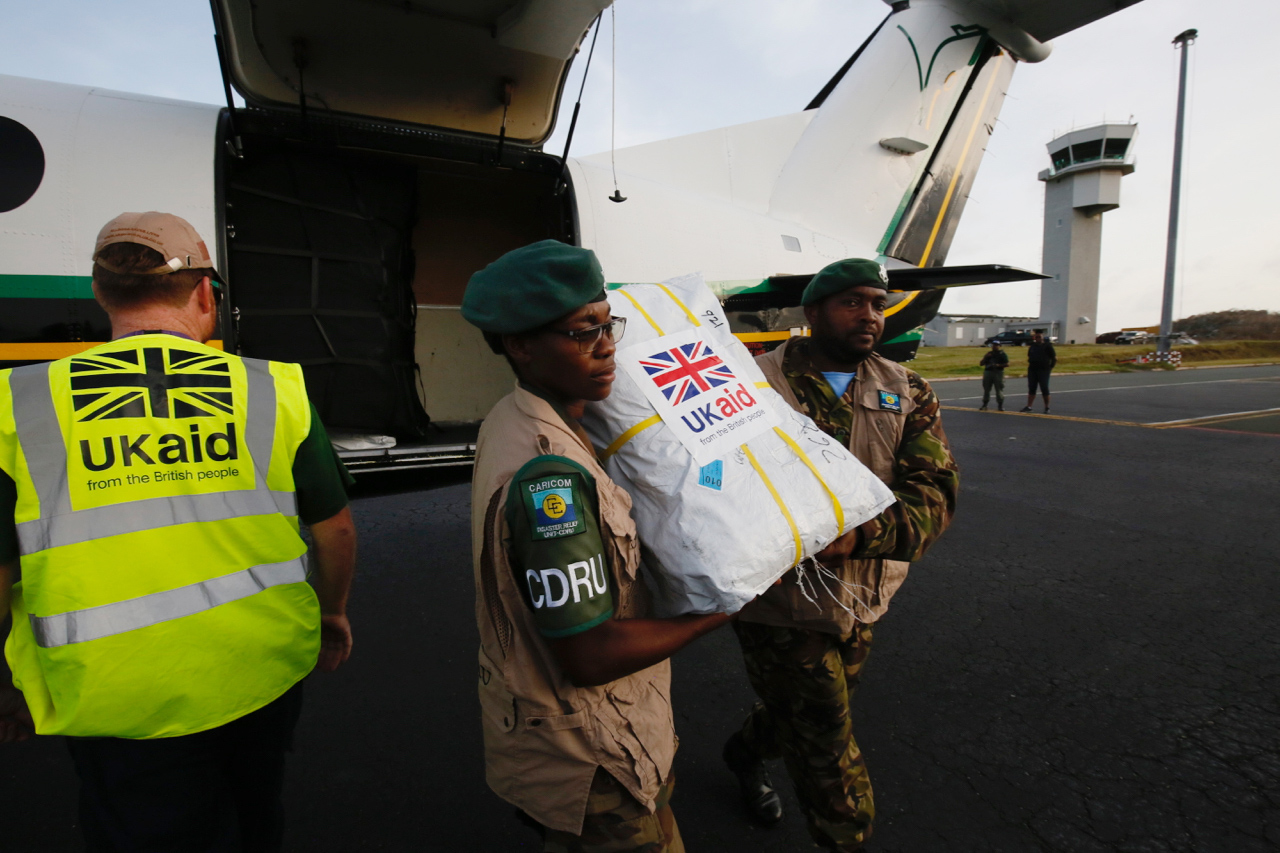Last week’s report from the Migration Advisory Committee (MAC)—an independent body commissioned by the Home Office—included some good suggestions for the UK government, such as removing the cap on high-skilled immigration. However, the committee also made the rather extreme, and we think ill-advised, recommendation that there should be no legal work-based route for so called “low-skilled” immigration, which would shut the door on people without a job offer worth £30,000. The report notes that any migration policy will have “winners and losers,” but there is one group it ignores entirely: people from poorer countries.
We would all expect a UK advisory committee, and the government, to prioritise British interests. However, the government has rightly said that reducing global poverty is in the national interest, and that it will use a wide range of policies, not just aid, to promote international development. Our migration policy affects poor countries as much as anything else we do, so you might have expected the MAC’s mandate to invite the committee to include an explanation of how its recommendations would affect the developing world. Sadly, there is nothing in either the mandate or the recommendations about how any of this will impact development.
We think that after Brexit there should be a safe, regular route for people from developing countries to move to the UK. This would have enormously positive impacts on people in poor countries, with little or no cost to the UK—and potentially big benefits. We propose three such routes: (1) relaxing the £30,000 requirement on tier 2 visas for people from poor countries; (2) allowing some lower-skilled workers to come to the UK, and (3) expanding the Youth Mobility Scheme to include poorer countries.
Migration is good for development and good for the UK
Migration is one of the most effective tools for development and poverty reduction. Migrants to a rich country from a poor one can expect their income to increase seven to tenfold, sometimes more, for doing the same job. The flow of money they send to relatives back home far surpasses aid flows. Returning emigrants bring home knowledge, skills, and capital that can help their home countries develop. There is also evidence that migration from poor to rich countries can create links that increase trade, technology transfer, and investment in their home countries. These links are mutually beneficial, strengthening the UK as well as poor countries. A 2009 study even suggests that returning migrants can help their home countries to democratize.
If rich countries relaxed immigration restrictions and let in workers equal to just 3 percent of their workforce, one study estimates that developing countries would gain $156 billion annually—half as much again as the gains expected from the liberalisation of all remaining goods trade restrictions. Another study, from the World Bank, estimates that poor-country citizens would gain $300 billion from this policy—roughly four and a half times the total magnitude of foreign aid.
The evidence suggests that the impacts of migration on employment and earnings of UK workers, and on the public finances, are very small (and often, though not always, positive). The MAC report itself concludes that “immigration is not a major determinant of the wage growth experienced by existing residents,” and that effects on employment, if any, are “overall very small.” It also notes that “migrants contribute more to the health workforce than they consume in healthcare,” and that unless wages in social care rise, “migrant workers will be necessary to continue delivering these services.”
However, the report is likely to underestimate the benefits of migration to the UK. Macroeconomic studies of immigration (like this and this and this) find that immigration increases both GDP per capita and government revenues. More immigration means more people buying things, more business investment, more technological adaptation, and a more diverse labour force. Natives can adapt to new opportunities by switching jobs, upskilling, or moving. However, most economic studies of immigration (like the ones used by the MAC) hold all of these things constant, meaning they fail to capture the full benefit of migration. Only one study (that we know of) has ever overcome this problem by tracking individuals over time. It finds that large inflows of low-skill refugees caused native low-skill workers to earn more, mostly through adjustment like upskilling and moving.
The positive impacts of migration on people from poor countries are so huge—and the wider benefits to the UK also large—that we should think carefully before making new UK immigration rules based only on what are widely accepted to be small and uncertain effects on the labour market.
Proposition 1: Relax the £30,000 test
The MAC report advocates having no legal work migration route for “lower-skilled workers” to come to the UK, except perhaps to pick fruit. However, the definition of lower-skilled is stacked against people from poor countries. To qualify as medium- or high-skilled and be eligible for a “tier 2 visa,” you must have a job offer worth £30,000 and almost £945 of savings before coming to the UK. People living in poor countries, even those with high earnings potential, will find it harder than those from rich countries to secure a £30,000 job offer and almost £1,000 in savings before coming to the UK. Unsurprisingly, according to the government’s figures, in 2015 less than 1 percent of tier 2 visas went to people from low-income countries, and only 3.9 percent went to people from sub-Saharan Africa.
We should relax the salary requirement for people from developing countries, so that if they have the right skills and qualifications they can come and find a job once they arrive in the UK. High demand for tier 2 visas from employers shows that there are jobs waiting, but the current process makes it difficult for would-be migrants from poorer countries to get a visa, and puts a burden on employers who want to hire them.
Proposition 2: Leave some route for lower-skilled workers
We believe that there should also be a route for migrants with less earning potential to come to the UK. The evidence is clear that this could have a transformative impact on poverty, whilst having little or no negative impact, and potentially a positive impact, on British workers. Nurses, hospitality workers, teachers, and builders might not earn over £30,000, but they make a valuable contribution. There’s also evidence that giving people a chance to migrate safely reduces irregular migration.
It’s also worth remembering that skills can be learned. Our colleague Michael Clemens proposes a Global Skills Partnership, in which the UK would train people from a poor countries in, say, nursing, before granting them a visa. Alternatively, we could have a policy like the US “green card lottery,” which requires only that applicants have a secondary education and has been running successfully for decades.
Proposition 3: Expand the Youth Mobility Scheme
Finally, we agree with the MAC report that the “Youth Mobility Scheme,” a reciprocal scheme allowing young people from eight rich countries to come to the UK for up to two years, is an excellent idea. As the UK aims to forge trade links with countries around the world after Brexit, it would make sense for us to expand this scheme to poorer countries. The best evidence suggests that people who move from poor countries to rich countries earn wages similar to people in rich countries with similar levels of education: people are poor because of where they are, not who they are. Expanding the youth mobility scheme could therefore have huge development impact and help the UK forge links with more countries, without concerns about lower wages.
Reasonable people can disagree on these exact proposals, and there are certainly many more good ideas out there. However, if Britain is to continue to be a world leader in development and an outward-looking country, we can’t completely ignore the impact of our migration policy on development.
We are grateful to Michael Clemens for comments on an earlier draft.
Disclaimer
CGD blog posts reflect the views of the authors, drawing on prior research and experience in their areas of expertise. CGD is a nonpartisan, independent organization and does not take institutional positions.





